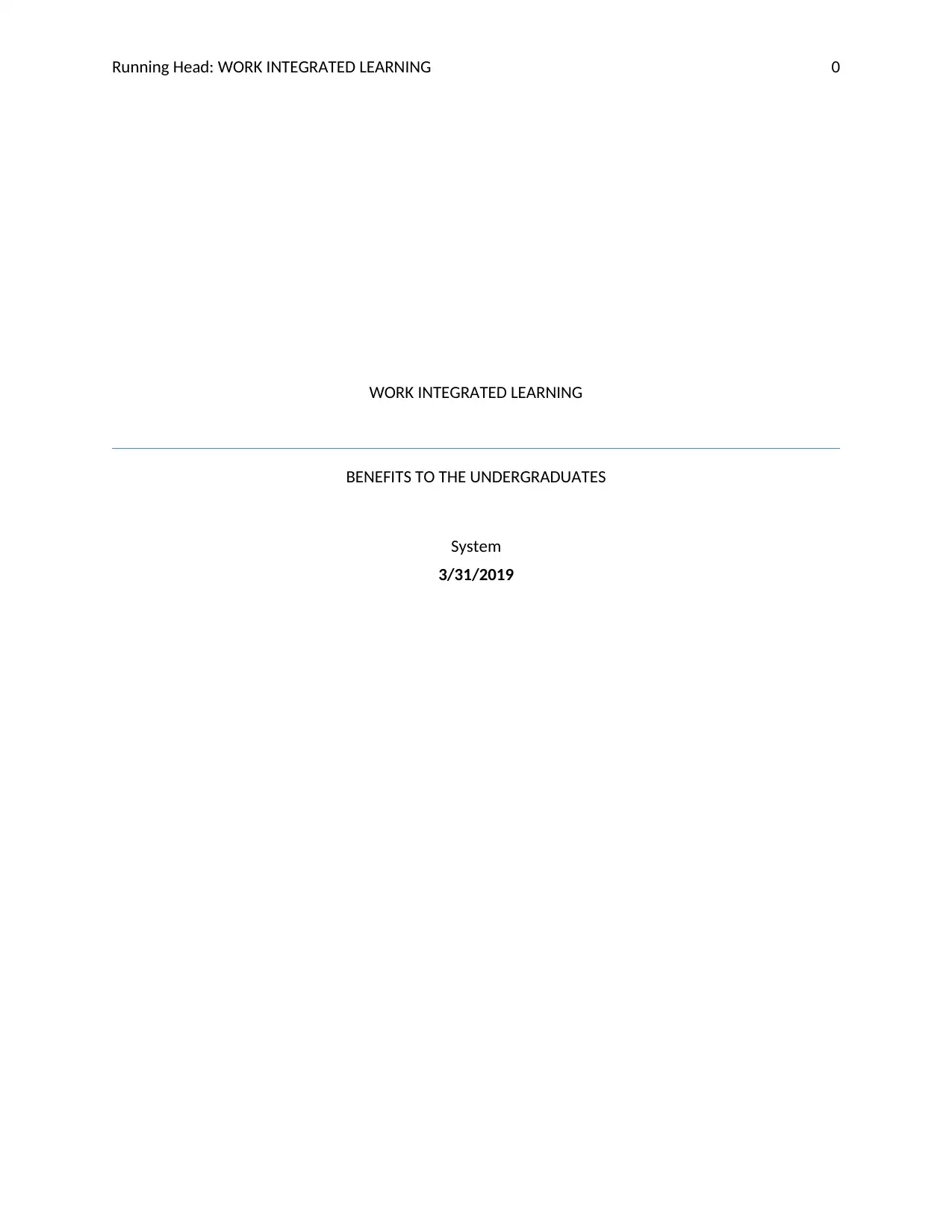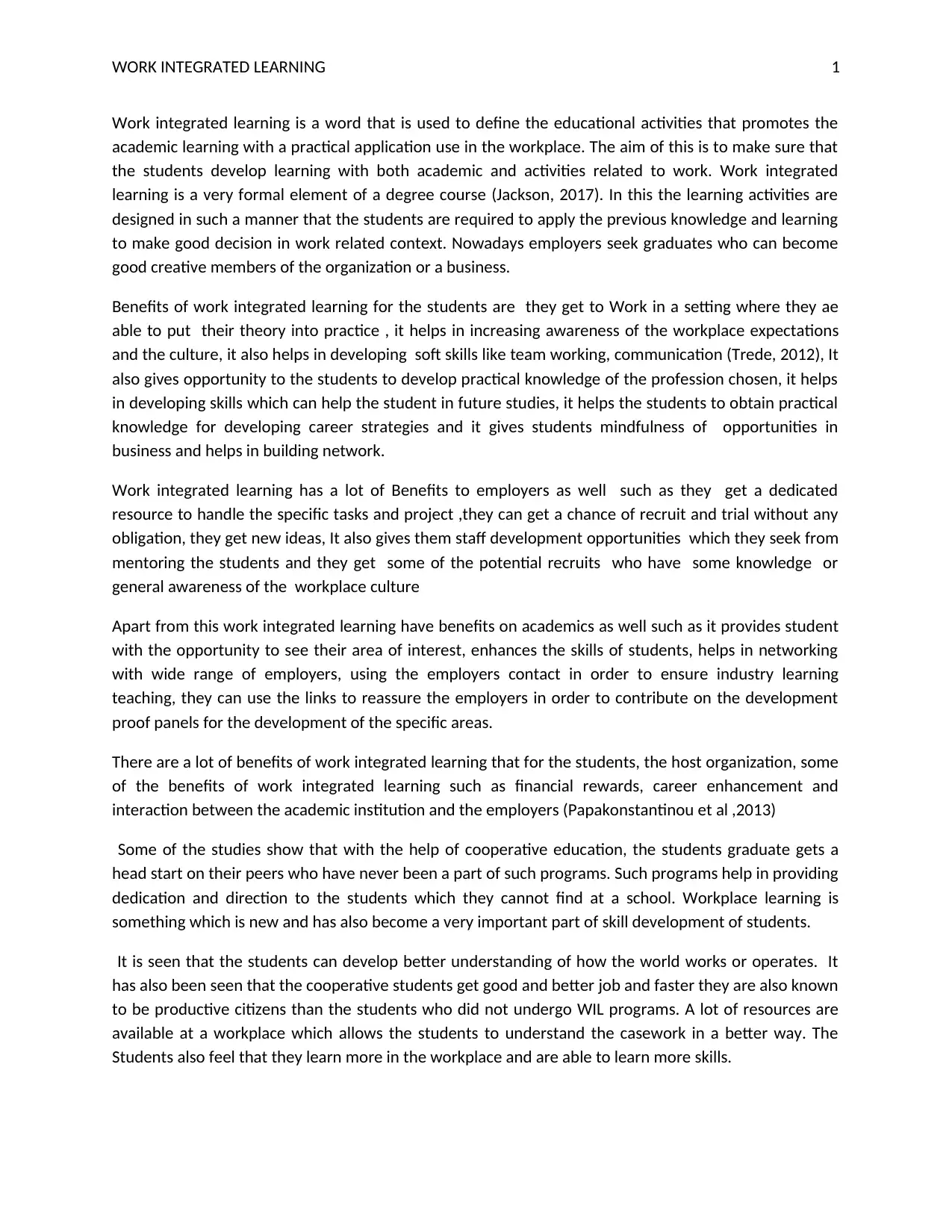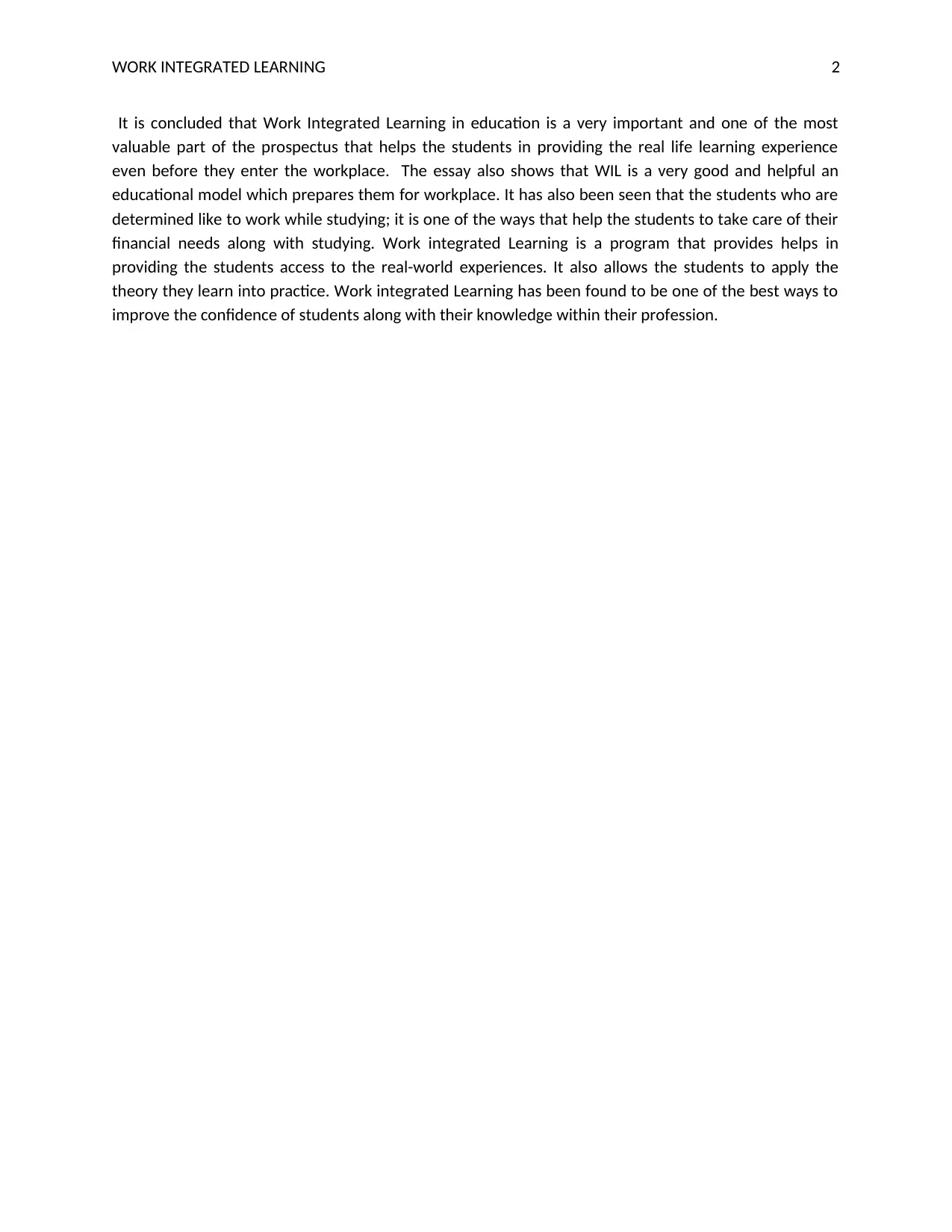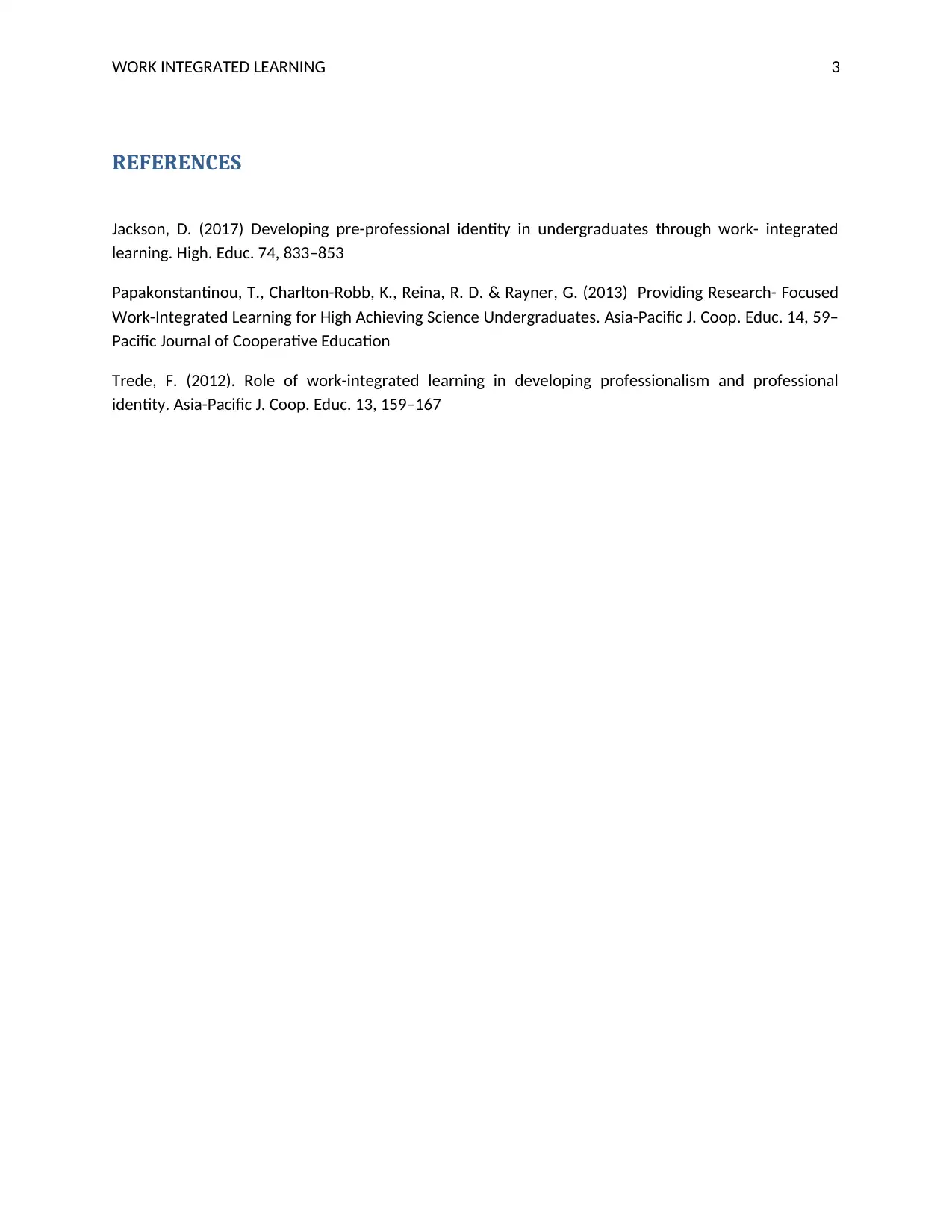Work Integrated Learning: Benefits, Skills & Career Development
VerifiedAdded on 2023/04/20
|4
|889
|327
Essay
AI Summary
This essay discusses the benefits of Work Integrated Learning (WIL) for undergraduate students. WIL integrates academic learning with practical workplace experience, fostering skill development, increasing workplace awareness, and enhancing soft skills like teamwork and communication. It also provides opportunities for students to gain practical knowledge, develop career strategies, and build professional networks. The essay further highlights the advantages for employers, such as access to dedicated resources, opportunities for recruitment, and fresh ideas. Ultimately, WIL prepares students for the workforce by providing real-world learning experiences and improving their confidence and knowledge within their chosen profession. It bridges the gap between theory and practice, equipping students with the skills and experience needed to succeed in their careers. Desklib provides a platform for students to access more resources and solved assignments.
1 out of 4











![[object Object]](/_next/static/media/star-bottom.7253800d.svg)